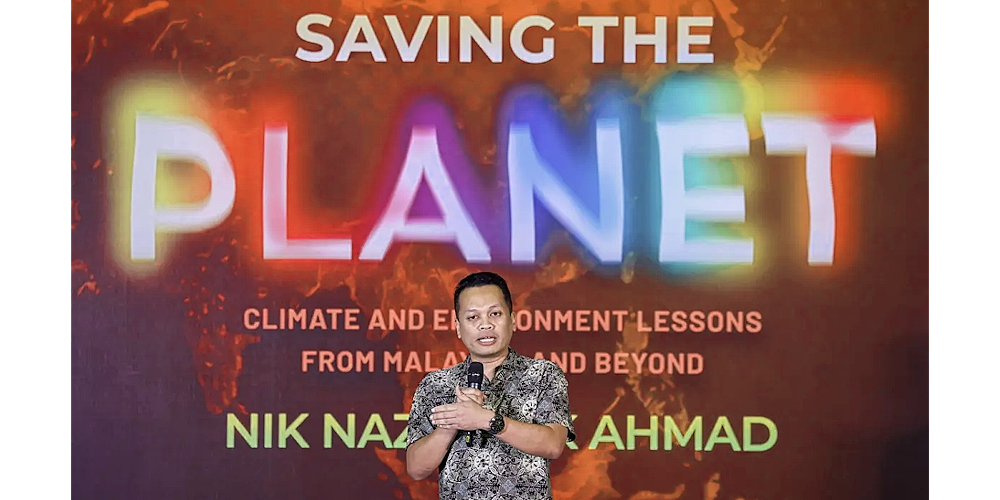
It was perhaps inevitable that some would criticise Prime Minister Datuk Seri Anwar Ibrahim’s announcement that Malaysia will aid in the reconstruction of Gaza.
He has been accused of neglecting national interests in favour of global affairs.
This narrative, however, ignores Malaysia’s long record as a vocal Middle Power, not to mention our role as ASEAN Chair this year. We have a responsibility to speak for the region on critical global issues – including the on-going humanitarian crisis in Gaza.
Malaysia has always embraced the world
On 21 January 2025, ASEAN itself called for “the full, safe, rapid, and unhindered delivery of humanitarian assistance for the Palestinians, including through the continuation of UNRWA’s role and mandate, and for the immediate reconstruction in Gaza.”
Malaysia, as the current chair, has the responsibility to reflect and reinforce this position.
Our country has a long-standing commitment to the Palestinian cause – whatever the political shade of the government in power and with the support of the rakyat of all faiths.
Our country has been vocal since Merdeka on international questions, including taking stands against the Apartheid in South Africa, long before it was fashionable, and in support of Bosnia during the war there.
Our government and civil society bodies have not only assisted Palestine, but many countries in need whether due to conflict, natural disaster or other tragedies.
To suggest that Malaysia should now be silent on Gaza would be ahistorical and unprincipled.
Would the critics have preferred that the Prime Minister said nothing at all? Had he remained silent, they would have accused him of indifference. Had he merely welcomed the ceasefire without advocating for reconstruction, they would have called it tokenism.
Madani delivering results at home
Furthermore, the narrative that our international engagements are at the expense of domestic issues ignores the real achievements of the Madani government.
Malaysia’s economy grew by 5.3 per cent in Q3 2024 and 5.2 per cent in the first three quarters of 2024.
Both headline and core inflation remained stable at 1.9 per cent in Q3 2024, and the ringgit was the best-performing currency in Asia last year.
Agencies like Fitch and Moody’s have maintained Malaysia’s credit ratings, underscoring investor confidence. Malaysia is on track to become a high-income nation by 2028.
The Fiscal Responsibility Act has been introduced, while the government has been continuously reducing the fiscal deficit.
Investors have also been buoyed by a clear policy direction shaped by the Madani Economy Framework and key plans such as the National Energy Transition Roadmap and New Industrial Master Plan.
Of course, the challenge is to translate these numbers into tangible and meaningful benefits for the rakyat.
The legal minimum wage has been increased to RM1,700. The progressive wage mechanism is being rolled out to allow private firms to voluntarily sign up along with a focus on productivity as well as pay increases combined with government incentives.
The public sector too has enjoyed a pay increase starting December 2024, with a higher percentage going towards low-ranking officers.
The government made the difficult but necessary decision to a more progressive targeted subsidy policy – ensuring that the very rich do not enjoy electricity and diesel subsidies any more.
We have also implemented key legal and institutional reforms. Suicide has been decriminalised and the mandatory death penalty has been abolished.
The Federal Constitution has been amended to improve our citizenship laws, including to allow Malaysian women to pass their citizenship to their overseas born children.
Work is progressing on the long-held goal to split the offices of Attorney-General and Public Prosecutor, as well as strengthen the independence of Parliament.
Tremendous progress has been made due to the commitment of the Prime Minister as well as the Sabah and Sarawak State Governments to ensure that the pledges under the Malaysia Agreement 1963 are fulfilled.
The Ministry of Natural Resources and Environmental Sustainability that I head is in the midst of passing a Climate Change Bill that will put a legal framework on the commitments made under the Paris Agreement.
Next year, we intend to complete the National Adaptation Plan, realising the climate adaptation must be at the centre of our policymaking moving forward.
Meanwhile, the Department of Environment from February 2025 will enhance and expand the transparency of EIA reports. This is after increasing the penalties of environmental crimes to a maximum fine of RM10 million and mandatory five-year imprisonment.
Of course, more can always be accomplished. The government understands that we need to deliver the goods soon.
We are not distracted. We are delivering.
The fact is that the Madani Government, forged from traditionally opposing political coalitions, has successfully delivered a stable government, delivered economic growth for the rakyat and pushed through key reforms.
What happens globally will sooner or later affect us directly. We cannot afford isolationism, nor can we pretend that disengagement will somehow serve our national interests.
Isolationism will hurt Malaysia
What’s really troubling is the almost instinctive pushback in our public discourse whenever our country takes a stand on global issues. It’s something that all Malaysian governments have had to deal with and could paralyse our country at a time when boldness, rather than timidity, is needed abroad.
One end of the spectrum will claim that Malaysia is not doing enough, or that our engagement is hypocritical.
The other end will insist we should focus solely on domestic concerns, as if Malaysia somehow exists in a vacuum.
Some even imply – indirectly or openly – that our country is a “small fry”, too insignificant for its actions to matter – an insulting notion that diminishes our national standing.
It suggests that so-called “small” countries have a free pass to do nothing at all on the great moral questions of our time.
This is, in essence – and, dare I say it – a “Malaysia First” position – ironic, given how many of the same voices who deride Anwar’s engagement would be offended at being associated with Trumpism.
Let’s be clear: expecting any government to abandon foreign policy is unrealistic. It simply doesn’t work that way. Those who say otherwise are either being disingenuous or failing to understand Malaysia’s global realities.
Malaysia is an open, trade-dependent nation. We are a Middle Power that needs to navigate the diplomatic contours of the world.
What happens globally will sooner or later affect us directly. We cannot afford isolationism, nor can we pretend that disengagement will somehow serve our national interests.
Engaging internationally (including on Palestine) is not just about moral leadership and clarity – is about securing Malaysia’s future.
Our efforts to attract investment and trade require strong international relationships. Our contributions – however seemingly modest – to global justice, peace and stability – ultimately help ensure our own.
No one is suggesting that domestic challenges should be ignored. But foreign and domestic priorities are not in a zero-sum competition.
Neglecting either would be to Malaysia’s peril. Our Prime Minister has shrewdly recognised this.
I am confident all right-thinking Malaysians who love their country will do so as well.

(Nik Nazmi Nik Ahmad is the Minister of Natural Resources and Environmental Sustainability. His latest book is Saving the Planet: Climate and Environmental Lessons from Malaysia and Beyond.)
ADVERTISEMENT
ADVERTISEMENT



































